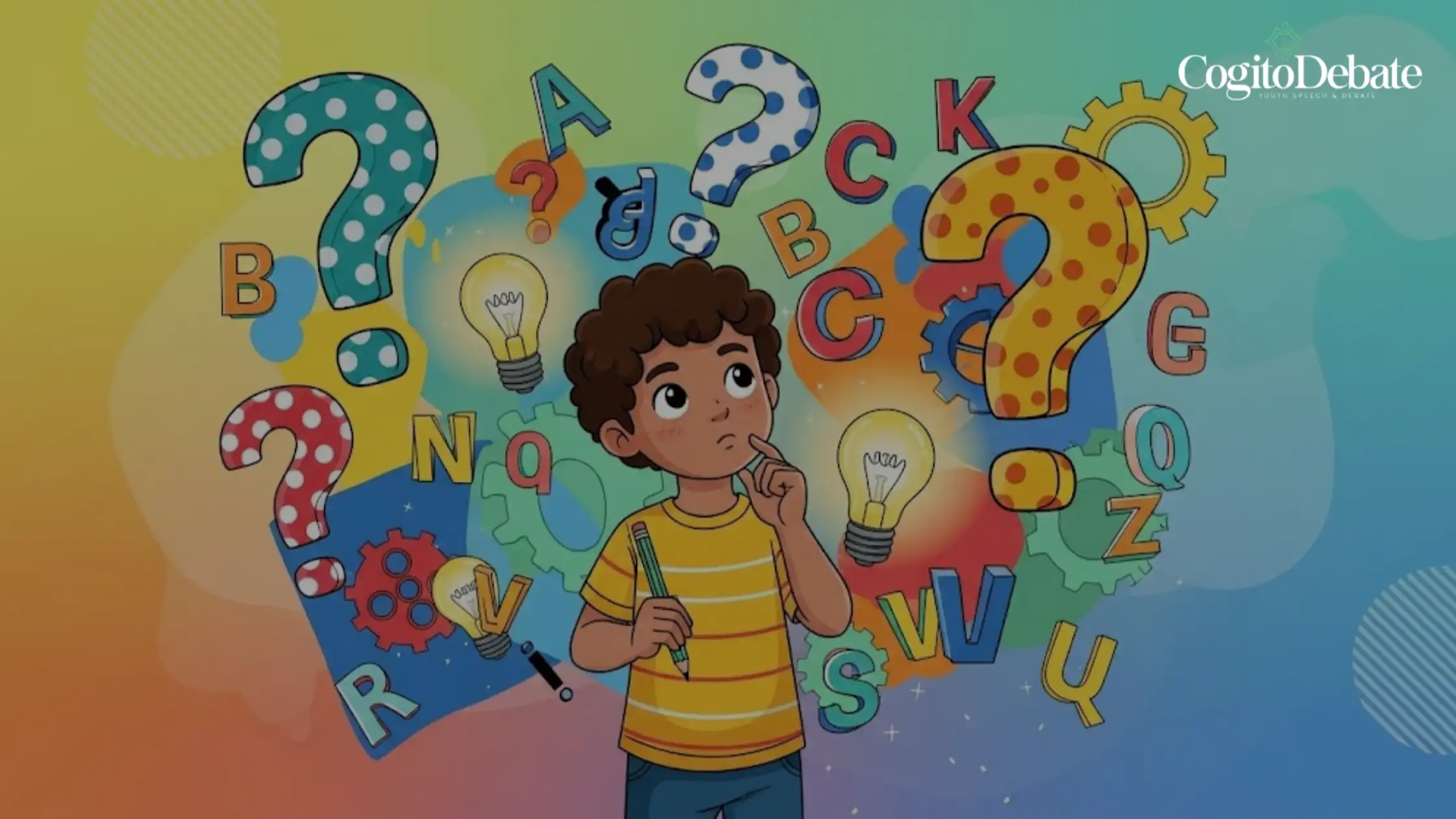Think Smarter in a World Full of Noise. In today’s digital-first world, we are constantly flooded with information, opinions, and decisions. From scrolling through social media to reading the news or making everyday decisions, we are required to interpret and evaluate content more quickly than ever before. But amidst this information overload, what truly sets successful individuals apart is not just what they know—but how they think.
This is where critical thinking becomes an essential life skill. It’s not just about being smart—it’s about being clear, objective, analytical, and reflective. Critical thinking enables us to separate fact from fiction, evaluate situations fairly, and make better decisions in school, work, and life. Whether you’re a student preparing for future challenges, a parent guiding your child, or an educator shaping tomorrow’s minds, learning how to improve critical thinking is an investment that pays off across every area of life.
Let’s explore 10 powerful, proven strategies that will help you sharpen your thinking and take your reasoning skills to the next level.
Why Critical Thinking Matters in Everyday Life

Critical thinking isn’t just for philosophers or academics. It’s a practical skill that empowers people to solve problems, evaluate arguments, and make thoughtful decisions. In an age where misinformation spreads quickly and snap judgments dominate public discourse, critical thinkers are more valuable than ever.
Here are just a few reasons why strong critical thinking skills are vital:
- Improved decision-making: You assess options rationally, anticipate outcomes, and avoid emotional traps.
- Greater independence: You form your own opinions instead of blindly following others.
- Stronger problem-solving: You break down complex challenges into manageable steps.
- Enhanced communication: You express yourself clearly, logically, and persuasively.
- Informed citizenship: You understand societal issues and make meaningful contributions to discussions and decisions.
Clearly, developing critical thinking is not just about academic success—it’s about navigating the real world with confidence and clarity.
How to Improve Critical Thinking: 10 Proven Strategies
Improving your critical thinking doesn’t happen overnight. It requires practice, reflection, and conscious effort. Below are ten strategies you can start using today to become a more thoughtful, discerning thinker.
1. Question Everything and Dig Deeper

The foundation of critical thinking is curiosity. Don’t take information at face value. Instead, adopt a mindset of inquiry.
- Ask “Why?” and “How do I know this is true?”
- Challenge the source: Is it credible? Is there evidence?
- Seek out assumptions: What’s not being said?
This questioning mindset encourages deeper understanding and prevents you from accepting flawed logic or false claims. The goal isn’t just to find answers—but to ask better questions.
2. Seek Diverse Perspectives and Challenge Your Own Views
We all carry biases, shaped by our background, culture, and experiences. To become a critical thinker, you must actively challenge your own assumptions by engaging with different perspectives.
- Read content from sources you don’t always agree with.
- Talk to people from different walks of life.
- Reflect on how your views might be limited.
Exposing yourself to other viewpoints not only builds empathy but also broadens your understanding. It helps you avoid echo chambers and approach problems with a more open, flexible mindset.
3. Master the Art of Evidence Evaluation
A major component of critical thinking is the ability to analyze and verify information. In the digital era, where anyone can publish anything, this skill is essential.
Here’s how to assess the quality of information:
- Check the credibility of the source.
- Look for data and statistics—are they current and relevant?
- Watch for logical fallacies or emotional manipulation.
- Confirm if the information is supported by multiple sources.
Strong thinkers don’t just rely on instincts; they rely on facts, and they know how to verify them.
.
4. Identify and Counter Biases (Yours and Others’)
Bias isn’t just something other people have—we all have them. The key is to become aware of them and learn how to minimize their influence.
- Are your decisions based on facts or feelings?
- Do you seek evidence that only supports your current beliefs (confirmation bias)?
- Are you giving all sides of an issue equal consideration?
By identifying these mental shortcuts, you begin to think more clearly and fairly. Recognizing bias—both in yourself and others—is a powerful step toward objectivity.
5. Cultivate Intellectual Humility

Intellectual humility means accepting that you don’t have all the answers—and that’s okay. It’s the willingness to learn, admit mistakes, and change your mind when presented with new evidence.
Critical thinkers are not stubborn. They are open to:
- Being wrong.
- Hearing counterarguments.
- Updating their views based on logic and evidence.
When you approach thinking with humility rather than ego, you learn faster and make better decisions.
6. Practice Structured Argumentation and Logical Reasoning
Learning how to build and defend logical arguments is a core skill in critical thinking. Whether you’re writing a paper, participating in a debate, or defending a viewpoint, being able to reason well matters.
Key components of sound reasoning include:
- Clear claims supported by evidence.
- Logical structure (premise → conclusion).
- Rebuttals that address counterarguments respectfully.
This skill also helps you evaluate others’ arguments more critically and avoid falling for weak or manipulative reasoning.
7. Embrace Ambiguity and Complexity
Not all questions have clear answers. In fact, many of life’s most important decisions involve gray areas, competing priorities, or incomplete information.
Critical thinkers understand that:
- Uncertainty is normal.
- Complex problems require time and layered solutions.
- Oversimplifying often leads to poor decisions.
Instead of rushing to judgment, embrace the process of thinking through nuance and recognizing multiple sides of an issue.
8. Engage in Deliberate Self-Reflection and Metacognition
Metacognition means “thinking about your thinking.” It’s the habit of pausing to evaluate how you process information and make decisions.
Try asking yourself:
- Did I jump to conclusions?
- Was I influenced by emotion more than reason?
- What would I do differently next time?
This kind of self-assessment helps you grow over time, refine your thinking habits, and become more conscious of your cognitive strengths and weaknesses.
9. Apply Critical Thinking to Everyday Life
Critical thinking isn’t just for academic or workplace tasks. You can—and should—apply it to your daily choices.
Examples:
- Evaluate news articles before sharing them.
- Compare product reviews carefully before purchasing.
- Plan your time and budget based on goals and trade-offs.
When you treat everyday decisions as opportunities to practice critical thinking, you build habits that make it second nature.
10. Participate in Structured Debates and Discussions

One of the fastest ways to sharpen all aspects of critical thinking is through active debate and dialogue. Debate forces you to:
- Prepare arguments backed by facts.
- Anticipate and counter objections.
- Think on your feet and respond logically under pressure.
At Cogito Debate, we’ve seen firsthand how powerful this practice is. Our structured summer debate programs 2025 provide the ideal environment to develop real-world thinking skills in students, helping them grow into confident, informed communicators and problem-solvers.
How Cogito Debate Can Accelerate Your Critical Thinking Journey
At Cogito Debate, we believe critical thinking isn’t just a skill—it’s a superpower for the 21st century. Our programs are designed to:
- Train students in structured reasoning, argumentation, and evidence analysis.
- Help them develop intellectual humility through respectful opposition and rebuttals.
- Foster communication skills that turn ideas into action.
- Create a growth mindset where thinking evolves through practice and feedback.
Whether you’re a student aiming for academic excellence, a parent preparing your child for future challenges, or an educator seeking enrichment tools—Cogito Debate is your partner in critical thinking mastery.
Conclusion: Critical Thinking is a Lifelong Skill—Start Today
Learning how to improve critical thinking is one of the most valuable steps you can take in life. It empowers you to make smarter choices, communicate more clearly, and navigate a complex world with clarity and confidence.
You don’t have to be born with it—you can build it, one habit at a time. Whether it’s questioning assumptions, evaluating evidence, or reflecting on your own reasoning, every step you take improves your thinking—and your life.
Ready to take the next step?
Explore Cogito Debate’s expert-led programs and discover how we help learners turn knowledge into wisdom, and ideas into impact.
